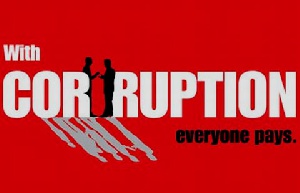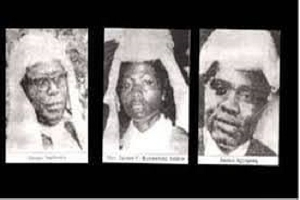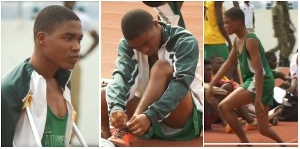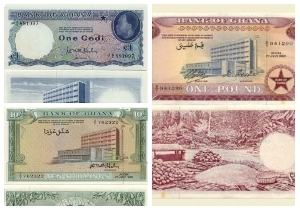“Our country must morally re-arm. We cannot run a country where vice is virtue. We cannot live in a country where the looters of yester-years assume they have undergone a Pauline conversion because they are in opposition and oppose the Government of the day. Some of our richest men and women are to be found in politics and their creed is, ‘thou shall reap what thou hath not sown”—PLO Lumumba
Perhaps, Confucius summed up our national anger at the naked thievery and aggressive plunder of public funds in these words: “In a country well governed, poverty is something to be ashamed of. In a country badly governed, wealth is something to be ashamed of.” Here in Ghana, we are ashamed of neither. The rich is celebrated and the poor is despised. To buy himself some dignity, the poor tries unapproved ways and means to resist poverty while the rich piles on more millions to spite the yelping dogs.
Moral caricatures and scandals
As if corruption is compulsory, we have all joined in the helpless plunder of our country’s financial resources, stealing as much as we can when we have the opportunity. Those who raise the alarm and cry out about public corruption are usually the unlucky ones who did not get the opportunity to steal. The fight against corruption has been difficult because we do not trust those leading the fight.
Corruption is a habit motivated by greed, jealousy and envy. We must unlearn the habit of stealing by building the values of accountability, transparency and integrity. To win the fight, our fathers, mothers and teachers must lead the way. Civil society advocacy is only effective in tacking the manifestations of corruption, not the habits.
Incidentally, the people we have trusted to chart the moral way out of corruption–our mothers, fathers and teachers–have proven more corrupt and only exemplary for all the wrong reasons. Sometimes, we forget that politicians, board members and chief executives whose photos adorn our newspapers are also parents. When their scandals break, we treat them like caricatures who are nothing like us.
Corruption scandals shock us because they lift the lid off the insatiable greed and gaping opportunism of people we admire. However, the revelations also place us favourably within the moral compass and make us look better in the eyes of society because we have not been caught yet. Hypocrites are often the best accusers.
Loot, share and return some
So far, this has been our only cure for corruption. The recent revelations of the brutal pillage of some $4Million from public funds by the former Chief Executive Officer and some members of the Board of the National Communications Authority (NCA), continue to dominate public discussions. The officials had billed the state $8Million for security equipment that would usually cost $4Million. They shared the balance among themselves, in a typical case of create, loot, share and return some.
Records available to the Minister of Information, Mustapha Hamid, show that former Board Chair Baffoe-Bonnie took $200,000; NCA Director-General, William Tevie, had $150,000 while George Oppong, a local agent and contract facilitator was compensated with $100,000. Alhaji Osman, a former deputy national security coordinator who is now on the run, took home $70,000, and Dr. Nana Owusu-Ensaw received $500,000 to be shared with some unnamed officials. Another $100,000 went to a person named Penny.
These corrupt acts (and there is more to come) may not have come out if there had not been a change in government. Meanwhile, the equipment on which $8Million had been spent is rotting away in somebody’s garage. If this story was the plot of a suspense-filled movie thriller, it would have been an instant award winner. IMANI boss Franklin Cudjoe calls the careless chop-chop highly stupid. And that is being charitable.
Thieves Executhieves and teachers
We have borne with a lot of stupid acts of corruption in political circles since the beginning of the Fourth Republic. But let’s leave the politicians and other public office holders alone and think about the society in which we live and the quality of people who inhabit it. If our ‘thieves executhieves’ steal, it is because they have seen all of us steal–in our churches, mosques, universities and trotro.
Have we not conspired as a continent to field 27 year olds in under 17 football competitions? We are unable to complain when Mali or Cameroon parades married men on the pitch as 16 and 17 year olds, because our boys also cheat. This is corruption. We present fake bank statements to foreign embassies to acquire visas with the intention of overstaying. We have made room for small and big corruption, unashamed to compensate for our small crime with the bigger scandals of our politicians.
My adopted daughter’s teacher probably thought he was only being a little corrupt when he resolved to add more marks to her examination scripts to make me happy. The teacher had asked me for financial support to enable him organise his mother’s funeral. As compensation, he decided to arbitrarily award my daughter free marks.
Before the gesture, my daughter flip-flopped between 24 and 30th position in their term examinations. Suddenly, she became an A student, scoring great marks in all subjects. Well, it turned out the mother’s death was a lie, just like my daughter’s grades. He had used similar corrupt tactics on other parents.
Nash Equilibrium
How do we change our strategy to fighting corruption when the people around us are not willing to change their ways? Like participants in a game, there is no gain or incentive to win if you revise your strategy because other players in the game are not prepared to change theirs. That is the Nash Equilibrium. We have cured corruption in this country by promoting a predictable strategic interaction between greedy people who are close to public funds. The next cycle of players repeat the formula.
Maybe we need to do what Thomas Sankara did if we want to end corruption. Along with a change in strategy, Sankara rechristened the former Upper Volta Burkina Faso, which means the land of upright people. We need good people in this country.
A new Ghana requires a new strategy. We need a new movement against corruption–the kind Adom FM and Captain Smart have started. If you are not part of the movement, you are the problem.
Opinions of Thursday, 1 June 2017
Columnist: Kwesi Twiah-Benjamin



















